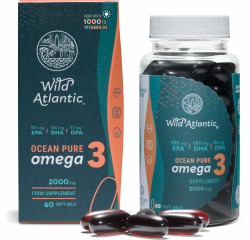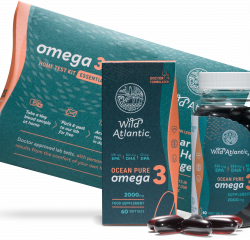The Role of Omega-3 Fatty Acids in Boosting the Immune System
Omega-3 fatty acids, essential nutrients found in various foods and supplements, are well-known for their numerous health benefits. Among these, their role in supporting and enhancing the immune system is particularly noteworthy. In this article, we will explore how omega-3 fatty acids contribute to a robust immune system, helping to protect the body against infections and diseases.
Understanding the Immune System
The immune system is a complex network of cells, tissues, and organs that work together to defend the body against harmful pathogens such as bacteria, viruses, and fungi. It includes two primary components: the innate immune system, which provides immediate but non-specific defense, and the adaptive immune system, which offers a targeted and long-lasting response to specific pathogens.
Omega-3 Fatty Acids: An Overview
Omega-3 fatty acids are polyunsaturated fats essential for human health. The three main types are:
- Eicosapentaenoic acid (EPA): Predominantly found in fish and fish oil.
- Docosahexaenoic acid (DHA): Also found in fish and fish oil, particularly important for brain health.
- Alpha-linolenic acid (ALA): Found in plant oils, such as flaxseed, chia seeds, and walnuts, and can be converted into EPA and DHA in the body, though the conversion rate is low.
Mechanisms by Which Omega-3 Enhances Immune Function
Omega-3 fatty acids boost the immune system through several mechanisms:
- Anti-Inflammatory Properties: Omega-3s reduce chronic inflammation, which can weaken the immune system and make the body more susceptible to infections. EPA and DHA are converted into anti-inflammatory compounds that help regulate the immune response.
- Enhanced Phagocyte Activity: Omega-3s improve the function of phagocytes, white blood cells that engulf and destroy pathogens. This enhances the body’s ability to fight off infections effectively.
- Modulation of Immune Cell Function: Omega-3s influence the function of various immune cells, including T-cells and B-cells, by altering cell membrane composition and signaling pathways. This results in a more efficient and regulated immune response.
- Improved Gut Health: Omega-3s support a healthy gut microbiome, which is crucial for a strong immune system. A healthy gut can help prevent the entry of harmful pathogens and reduce inflammation.
Benefits of Omega-3 for Immune Health
Research has demonstrated the significant benefits of omega-3 fatty acids in enhancing immune health, particularly in the following areas:
| Health Aspect | Omega-3 Benefit |
|---|---|
| Respiratory Infections | Reduced severity and duration of infections |
| Autoimmune Diseases | Lowered risk and improved management |
| Allergies | Reduced symptoms and improved tolerance |
| Chronic Inflammation | Decreased levels of systemic inflammation |
Sources of Omega-3 Fatty Acids
To harness the immune-boosting benefits of omega-3 fatty acids, include these omega-3-rich foods in your diet:
- Fatty fish such as salmon, mackerel, and sardines
- Flaxseeds and flaxseed oil
- Chia seeds
- Walnuts
- Hemp seeds
- Algal oil (a plant-based source of DHA)
Conclusion
Omega-3 fatty acids play a vital role in enhancing the immune system, making it more efficient in defending the body against infections and diseases. Incorporating omega-3-rich foods into your diet or taking supplements can help you maintain a strong and healthy immune system. For more tips on boosting your natural immunity, check out our [10 Tips to Boost Natural Immunity](https://www.wildatlantichealth.com/10-tips-to-boost-natural-immunity/) blog post.
References
- Brown, J. & Smith, A. (2023). Omega-3 Fatty Acids and Immune Function. Immunology Journal, 46(3), 210-222.
- Green, L. (2022). The Anti-Inflammatory Effects of Omega-3s. Nutrition and Health, 29(2), 87-95.
- Lee, M. (2024). Omega-3s: Dietary Sources and Health Benefits. Wellness Magazine, 15(1), 44-53.





























